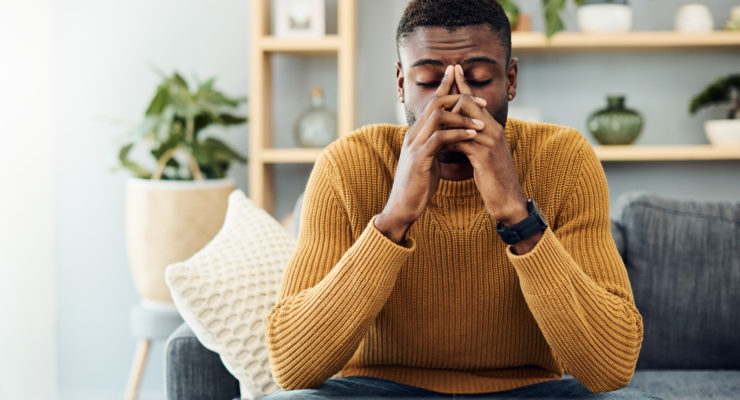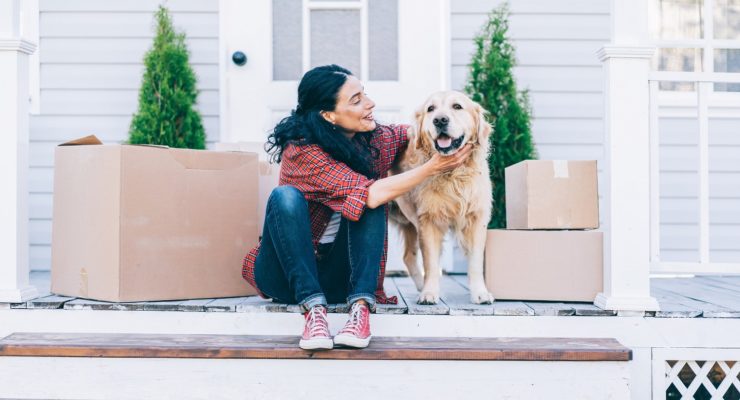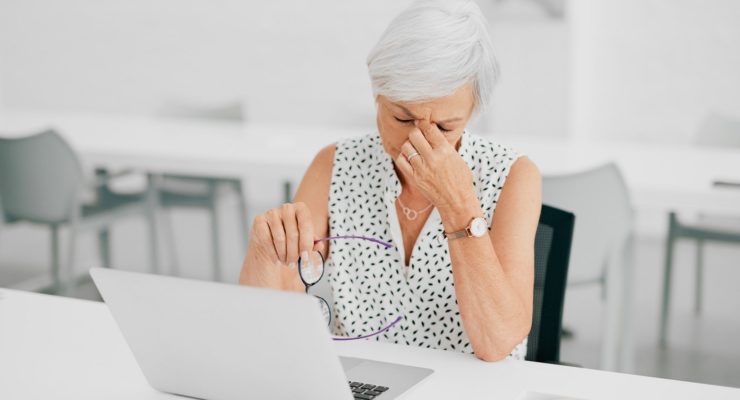For about 70 million Americans, a good night’s sleep is as mythical as the tooth fairy and Big Foot.1 For them, it just doesn’t exist.
At any given time, between 10 to 30 percent of the population suffers from insomnia—an inability to fall or stay asleep or poor quality of sleep when they do finally doze off. A good night’s sleep is defined as seven or more hours a night, according to the Centers for Disease Control and Prevention (CDC).2
Stress Drives Poor Sleep

There are many causes of poor sleep, but stress leads the list. So it should come as no surprise that the coronavirus pandemic—with its deadly combo of health concerns, economic anxiety, disruption of normal routines and isolation—triggered a 37 percent rise in insomnia, along with stress, anxiety and depression, according to a study of almost 6,000 people published recently in the journal Sleep Medicine.3
The American Psychological Association found in its 2020 annual survey, Stress in America, that stress is not only higher among Americans than in previous years, it’s the highest it has been since the survey was launched in 2007.4
The current wave of stress-induced sleep problems has even earned its own name: “coronoasomia.”5
The Vicious Cycle of Stress and Sleep Deprivation

Stress isn’t just the cause of sleep problems, it’s also the result of sleep deprivation. If you’re not getting enough shut-eye at night because you’re juggling your worries, they may seem to have multiplied overnight. And to add to those keep-you-up-at-night concerns: lack of sleep can lead to a depressed immune system, increased risk of health problems such as diabetes and hypertension, plus weight gain.6
In fact, if you’re trying to lose weight, not getting enough sleep is a major obstacle: Losing sleep can reduce the amount of weight you lose and trigger overeating, in part by altering your body’s appetite chemicals.7
Naps and a night-time glass of red wine may be your fallback plan for de-stressing and getting a better night’s sleep, but they’re not the best solution to avoiding the all-day yawns. And they’re not going to give you the skills you need to deal with everyday or extraordinary stress.
How To De-Stress And Get Good Sleep Tonight
Instead, follow these smart lifestyle tips from the nation’s top sleep and stress experts for calming down and getting all 40 of those winks.
1. Schedule regular daily exercise.

Exercise can help improve your mood and make whatever’s bothering you seem more manageable. Studies have found that 20 to 30 minutes of aerobic exercise—like a brisk walk or bike ride—can make you feel calmer for up to several hours.8 Exercising can also help you sleep better, research says. Just don’t exercise too close to bedtime. Those feel-good endorphins you get from aerobic exercise can actually keep you up—plus your core body temperature may rise which sends the wrong message to your body clock that it’s time to be awake, according to researchers at Johns Hopkins School of Medicine.9
On Nutrisystem, we recommend 30 minutes of daily activity each day for weight loss and better health. These 10-minute workouts make it easy to fit some movement into your everyday routine.
2. Meditate.

Meditation has been shown to calm you down and give you a sense of peace. It can also help you sleep.10 You don’t have to sit cross-legged and chant “Om” either. Simply finding a quiet spot and focusing on your breathing instead of the maelstrom of thoughts in your head can help anchor you to the present moment and shoo those thoughts away.
You can take meditation classes or use a guided meditation you find on the Internet in which you are “guided” by another person to a place of peace and relaxation in your mind. Yoga, tai chi and qi gong are forms of “moving meditation” that may help you both reduce stress and learn to relax enough to fall and stay asleep. Or you can simply take a deep breath to a count of four and exhale to a count of four whenever you’re feeling overwhelmed.11
Bonus: Studies have found that deep breathing can help you fall asleep and get back to sleep if you wake up. Not only by relaxing you, but by also initiating melatonin production.12
3. Cut back on caffeine.

Caffeine consumed at any time can give you the jitters. If you’re already stressed out, you need to switch drinks. Anything more than 400 milligrams a day—around four or five regular cups of coffee—can make you feel like you need to be scraped off the ceiling (your results may vary).13
And that cup of joe is a real killer at night. A 2013 study, published in the Journal of Clinical Sleep Medicine, found that having a caffeinated drink even six hours before bedtime can interfere with sleep, reducing shuteye by about one hour.14,15
4. Avoid excessive screen time.

TV, computer games, even e-books may actually make it hard to wind down for sleep. They’re not only stimulating, but the blue light emitted from the screen can suppress your body’s production of the sleep-inducing chemical melatonin.16 If you can’t cut down on screen time during the day, consider blue light blocking glasses or turning on the blue light filter on your e-book reader. A few small studies have found that blocking blue light can help you sleep.17,18
5. Find some green.

Visiting “green spaces”—a garden, a woodland park, a wilderness—during the day can relieve your stress. Not only do they provide a way to get some exercise, being in nature removes the distraction of daily life and helps you relax by making you feel like you’re “away,” according to a 2018 study in the journal, Behavioral Science.19
You don’t have to live at the edge of a national park to gain the stress-relieving benefits either. Spending even a little bit of time in a green space—only 10 minutes in research done by Cornell University—can have lasting results.20
6. When your worries wake you up, get up.

If you find yourself counting worries instead of sheep, get out of bed, says the Sleep Foundation. It’s counterproductive to toss and turn, wrestling with your thoughts. If you haven’t fallen asleep within 15 minutes after hitting the sack, leave the bed behind and go to another part of the house and do something that helps you chill, like meditating, reading, or listening to music. If your worries shake you awake in the middle of the night, don’t look at the clock. It will just make you more anxious. If you have to, drape a cloth over the clock face so you don’t see it.21
Sources:
- https://www.cdc.gov/sleep/about_us.html
- https://www.cdc.gov/sleep/data_statistics.html
- https://www.ncbi.nlm.nih.gov/pmc/articles/PMC7274952/
- https://www.apa.org/news/press/releases/stress/2020/report-october
- https://health.ucdavis.edu/health-news/newsroom/covid-19-is-wrecking-our-sleep-with-coronasomnia–tips-to-fight-back-/2020/09
- https://www.sleephealthsolutionsohio.com/blog/10-effects-of-long-term-sleep-deprivation/
- https://www.sleepfoundation.org/physical-health/weight-loss-and-sleep
- https://journals.lww.com/acsm-healthfitness/fulltext/2013/05000/stress_relief__the_role_of_exercise_in_stress.6.aspx
- https://www.hopkinsmedicine.org/health/wellness-and-prevention/exercising-for-better-sleep
- https://www.nccih.nih.gov/health/providers/digest/mind-and-body-approaches-for-stress-science
- https://www.mayoclinic.org/tests-procedures/meditation/in-depth/meditation/art-20045858
- https://www.ncbi.nlm.nih.gov/pmc/articles/PMC6361823/
- https://www.fda.gov/consumers/consumer-updates/spilling-beans-how-much-caffeine-too-much
- https://jcsm.aasm.org/doi/10.5664/jcsm.3170
- https://www.sleepfoundation.org/nutrition/caffeine-and-sleep
- https://www.sleepfoundation.org/sleep-guidelines-covid-19-isolation
- https://pubmed.ncbi.nlm.nih.gov/20030543/
- https://www.ncbi.nlm.nih.gov/pmc/articles/PMC5703049/
- https://www.ncbi.nlm.nih.gov/pmc/articles/PMC5981243/
- https://www.sciencedaily.com/releases/2020/02/200225164210.htm
- https://www.sleepfoundation.org/insomnia/stress-and-insomnia
The post Is Stress Ruining Your Sleep? How To Deal appeared first on The Leaf.
from The Leaf https://leaf.nutrisystem.com/reduce-effects-of-stress-on-sleep/





Post a Comment